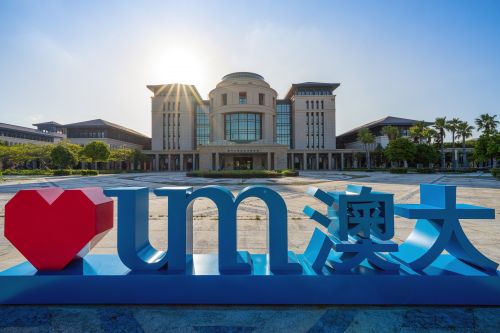SUSTAINABLE DEVELOPMENT
Sustainable Research and Investment Practices of University of Macau
The University of Macau (UM) is committed to embedding sustainable investment practices into its research and innovation initiatives. This policy ensures that UM’s resources and efforts contribute to long-term socio-economic and environmental sustainability while fostering innovation, entrepreneurship, and industry collaboration. The following principles guide UM’s approach to sustainable investment through its key centres and initiatives:
Centres with Strategic Investments
- Institute of Collaborative Innovation (ICI) UM prioritizes sustainable investment in interdisciplinary research through the Institute of Collaborative Innovation (ICI), which houses centres such as the Centre for Cognitive and Brain Sciences, Centre for Artificial Intelligence, and Centre for Data Science. These centres are designed to align with UM’s broader strategy of fostering innovation, promoting sustainable technological advancements, and enhancing industry-academia collaboration to achieve long-term societal impact.
- Centre for Innovation and Entrepreneurship UM’s policy supports sustainable entrepreneurship through the Centre for Innovation and Entrepreneurship, which incubates science and innovation enterprises. By fostering the development of start-ups in emerging industries, the centre promotes sustainable business practices, encourages innovation, and supports ventures that contribute to Macao’s economic diversification and sustainable growth.
- Zhuhai UM Science & Technology Research Institute (ZUMRI) UM is dedicated to sustainable regional cooperation through ZUMRI, located in the Guangdong-Macao In-Depth Cooperation Zone in Hengqin. The institute focuses on research areas such as advanced materials, smart city technologies, and biomedical sciences, which are key to addressing global challenges, reducing environmental impact, and driving sustainable development. ZUMRI also ensures that investments are aligned with national and regional priorities for economic and environmental sustainability.
- UMTEC Limited UMTEC Limited, a public capital enterprise owned by UM, plays a strategic role in the commercialization of research and innovation. UM’s policy mandates that UMTEC foster sustainable investment by promoting research achievements, facilitating industry collaborations, and contributing to the development of a knowledge-based economy in Macao and the Greater Bay Area.
Guiding Principles for Sustainable Investment
1. Industry-Academia Collaboration UM actively promotes collaboration between academia and industry to integrate research into practical applications. By prioritizing partnerships in fields such as health, modern finance, high technology, and cultural industries, UM ensures that its investments in research lead to economic diversification and sustainable development.
2. Focus on Sustainable Technologies UM’s research strategy emphasizes investment in areas critical to sustainability, such as advanced materials, smart city technologies, and biomedical sciences. This focus reflects UM’s commitment to developing solutions that reduce environmental impact, improve societal well-being, and contribute to global sustainability goals.
3. Support for Start-Ups and Entrepreneurship UM supports sustainable entrepreneurship through policies that encourage the incubation of science and innovation enterprises. By fostering start-ups that align with Macao’s economic diversification strategy, UM ensures that investments in new ventures contribute to long-term sustainable growth and innovation.
Through these policies, UM reaffirms its dedication to sustainable investment practices that prioritize innovation, economic diversification, and environmental stewardship, ensuring meaningful contributions to Macao, the Greater Bay Area, and beyond.
Policy on Sustainable Investment Strategy (IP)
The University of Macau (UM) is committed to implementing a sustainable investment strategy that aligns with its mission to foster socio-economic development and public welfare. This policy ensures that all intellectual property (IP), technology, and knowledge created or owned by UM are managed and commercialized responsibly, with a focus on long-term sustainability. Revenues generated from such activities are reinvested into research, innovation, and knowledge transfer initiatives to maintain a cycle of continuous development. The University prioritizes non-profit-driven knowledge and technology transfer, while also supporting start-ups and entrepreneurial ventures that align with its sustainability goals. This systematic approach reflects UM’s dedication to responsible resource management, social impact, and environmental stewardship.

